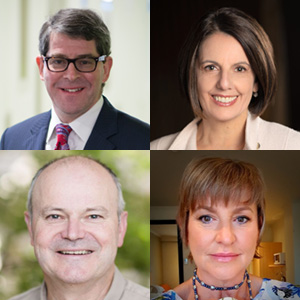The human body is composed of trillions of cells. Each individual cell communicates with others and performs certain tasks within the collective to keep our bodies working. Their ability to send and receive signals is vital, and when communication is disrupted, disease ensues. Many therapeutic drugs, for a multitude of diseases, target specific cell receptors – proteins on the cell surface that receive messages. Restore the communication, and you can restore normal function.
Volume 133 No. 2 (December 2021) of the Proceedings is now available online, open access through CSIRO Publishing. The latest volume features: A Late Oligocene brachiopod fauna from the rocky shore deposit at Cosy Dell farm, Southland, New Zealand; Pioneering of numerical weather prediction in Australia by Dick Jenssen and Uwe Radok using CSIRAC; and critical analysis of the wind climate data of the Melbourne metropolitan area.
The Royal Society of Victoria seeks expressions of interest from its Members in contributing as an Associate Editor to the publication of papers in our journal and the production of position papers reflecting the deliberations of our annual membership forums. This will be an honorary position, supporting editorial work on Victoria’s longest-running science journal and the development of the Society’s Position Papers.
Our environment cannot bounce back from major petrochemical contamination, on top of the constant flow of waste from agriculture, textile factories and our homes. The cheap and easy approach to dealing with waste has been to simply bury it, which is unsustainable, especially as chemicals inevitably leech out into soils and waters. While thermal desorption removes contaminants, it also kills the soil. The best solution is bioremediation.
We are delighted to announce the 2021 Fellows of the Royal Society of Victoria, the highest membership honour the Society can bestow on a person, which entitles the Fellow to use of the postnominals ‘FRSV.’ Please join us in congratulating our colleagues on this recognition of their work in furthering the Society’s goals to promote the sciences in Victoria, their contributions to their fields of research and education, and their continued commitment to the public appreciation of science.








